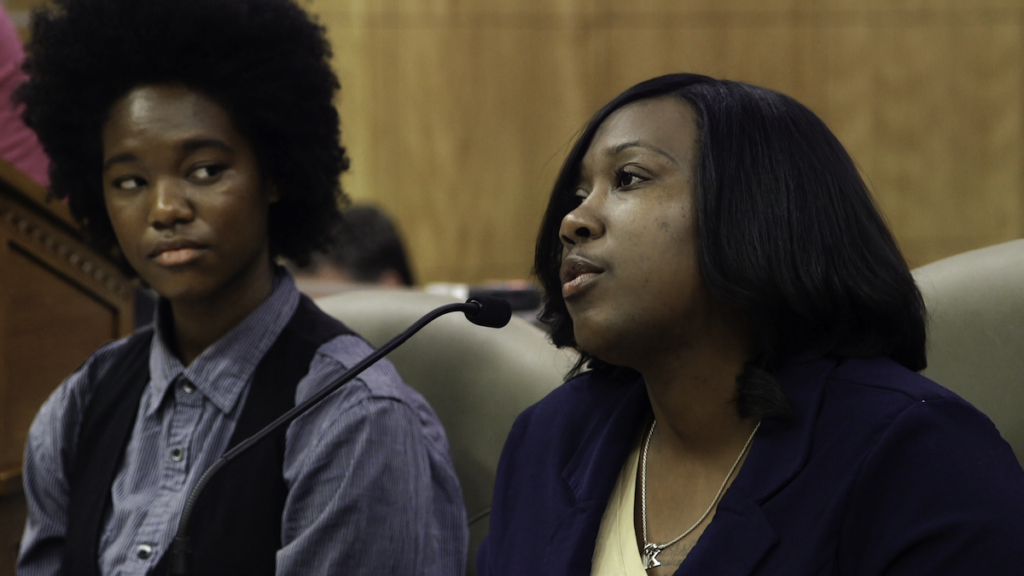Searing indictments of corrupt political systems, a trip down memory lane to a radical summer camp for teens with disabilities, an innovative tribute to the life and death of a man who is very much alive, 2020’s docs enraged, educated, and inspired in a year unlike any other. We’ve assembled some of the highlights of the year’s nonfiction filmmaking, with subjects as varied as the war being waged against the free press in the Philippines to forced sterilizations in the California prison system.
Here are our favorite documentaries of 2020.
“Crip Camp: A Disability Revolution” – Directed by Nicole Newnham and Jim LeBrecht
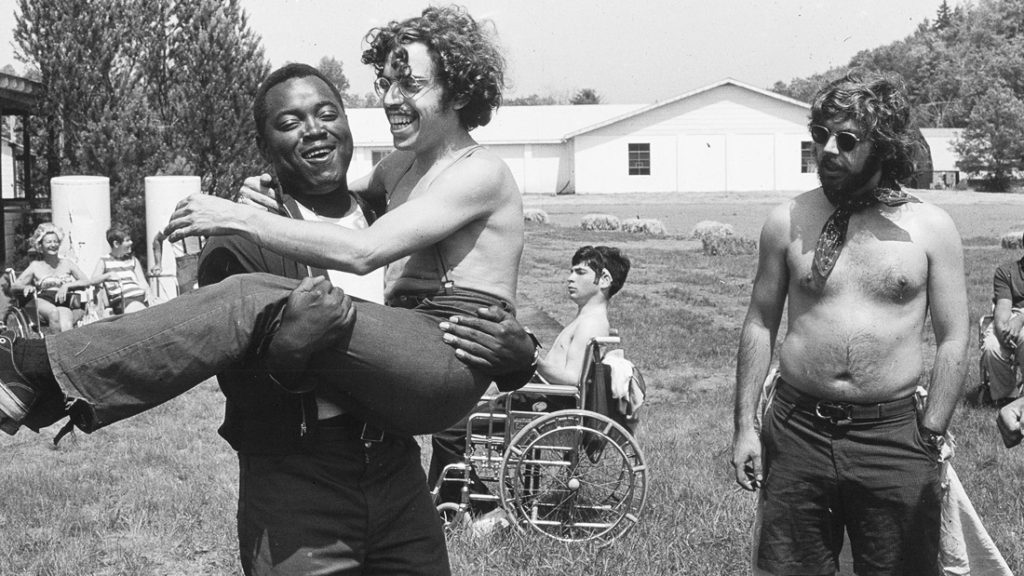
“Crip Camp”: Sundance Institute/Steve Honigsbaum
“I wanted to be part of the world, but I didn’t see anyone like me in it,” says Jim LeBrecht in “Crip Camp: A Disability Revolution.” The Sundance winner tells the untold story of how a ramshackle summer camp for teenagers with disabilities, located just down the road from Woodstock, sparked a revolution. The powerful, lovingly made documentary is directed by LeBrecht, a sound mixer and Camp Jened alumna, and Emmy winner Nicole Newnham.
Founded in 1951 and shuttered after the summer of 1977, Jened is described as a “utopia” by one of the campers. Here, teenagers could be teenagers without all the stereotypes and the labels associated with having disabilities, they explain. The camp offered an environment where the teens could discuss how their parents often denied them the right of privacy and treated their siblings differently. The doc, which features black and white footage taken during the camp’s run and recent interviews with the campers, also recalls how the alumni were able to explore romance and sexuality more freely at the camp than at home.
We witness some of the Jened Campers grow up to be activists determined to change the world. We see them help organizing and participating in protests demanding federal regulations that will guarantee civil rights for the disabled.
The conversations campers had at Jened are so resonant now, even decades later. The disability rights movement has made the world a slightly more hospitable place for its former campers, but the doc makes it clear that there’s still a long, long way to go towards achieving a more equitable — and accessible — world, and stigma and stereotypes persist. (Laura Berger)
“Crip Camp: A Disability Revolution” is available on Netflix.
“Boys State” – Directed by Amanda McBaine and Jesse Moss
There’s much to love about “Boys State,” a Grand Jury Prize winner at Sundance this year. Amanda McBaine and Jesse Moss’ doc gives an all-access look into an American Legion-sponsored program that sees a thousand Texas high school seniors gathering for a week-long program to build their own state government. Launched in 1935, the “experiment” is designed for teens to learn about democracy and civil discourse.
The doc is so immersive that it’s hard not to buy into all the drama. What happens on the campaign trail — and the results on election night — feel genuinely important. The stakes for this little experiment gradually become higher and higher, and it’s impossible not to draw parallels between the exercise and the (broken) political system it’s intended to mimic.
The memorable characters at the heart of “Boys State” make it all the more compelling. Ben, who worships at the altar of Ronald Reagan and watches famous political speeches as a hobby, believes that as an amputee he’s had to work harder “but the more we blame” race, gender, and disability instead of “acknowledging personal failures,” the more it’s a problem. Bernie Sanders inspired Steven, who will be the first in his family to graduate from high school, to get into politics. He quickly realizes that he’s a progressive person “in a room of mostly conservative people.” “I’ve never seen so many white people ever,” says Rene, who takes guidance from his grandmother. She’s always emphasized that “you had to have faith, hope, and a pissed off attitude.”
“Boys State” is a microcosm of Washington politics that sees one candidate admitting that his platform directly contradicts his personal beliefs — a concession he’s willing to make to get votes. “A message of unity, as good as it sounds, is not winning anyone any elections,” Ben observes at one point. Rene describes a peer as a “fantastic politician” before adding that he “doesn’t think a fantastic politician is a compliment.” Still, Steven insists that a public servant’s objective is to “serve others, and not yourself,” and after watching this doc we’re truly hopeful that he’ll run for office one day.
A Girls State also exists, and we’d love to see filmmakers pull back the curtain on that experiment as well. (LB)
“Boys State” is available on Apple TV+.
“Dick Johnson Is Dead” – Directed by Kirsten Johnson; Written by Kirsten Johnson and Nels Bangerter
“Dick Johnson Is Dead” sees a filmmaker struggling to come to terms with her father’s mortality the best way she knows how: by making a movie. “Just the idea that I might ever lose this man is too much to bear,” Kirsten Johnson explains in the doc. In an effort to simultaneously keep her father alive forever and cope with his inevitable demise, Johnson decides to make a film about him dying, staging elaborate, inventive death scenes and recording them.
A thoughtful meditation on identity in the wake of a dementia diagnosis, and a touching tribute to a man she’s loved and been loved by her entire life, Johnson’s documentary is also funny, and full of outrageous visuals.
Like Johnson’s solo directorial debut, “Cameraperson,” a visual memoir, “Dick Johnson Is Dead” is boldly original, both in concept and execution. As silly as it is tender, the doc is a strange and beautiful celebration of life. (LB)
“Dick Johnson Is Dead” is available on Netflix.
“Time” – Directed by Garrett Bradley
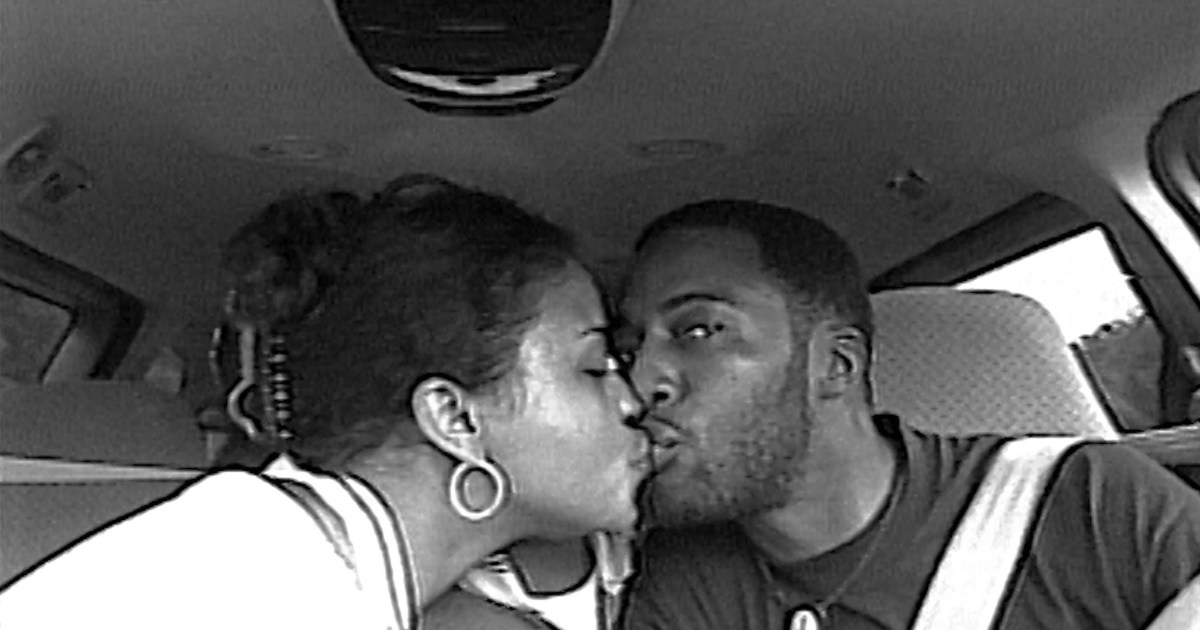
“Time”
Even as it turns an unwavering eye on the criminal justice system, “Time” is an extremely hopeful film. Garrett Bradley’s Sundance award-winning documentary feature debut is the story of Fox Rich, a woman fighting to free her incarcerated husband. It’s an uphill battle, but no matter the obstacle — apathetic court officials, judges failing to file rulings on time, astronomical lawyer bills, even her own dubious mother — Fox won’t let anything distract or dissuade her from her mission.
Fox’s husband, Rob, was sentenced to 60 years in prison for a robbery they both committed in the early ’90s. Fox pled guilty, Rob did not. Ever since she completed her own, relatively short sentence, Fox has focused on freeing Rob and has kept him connected to their family with home videos. “Time” juxtaposes these videos with Bradley’s present-day footage of Fox and the couple’s children. The viewer gets to see how much has changed while Rob has been imprisoned — their younger sons have completely grown up without having him around — and how much has not. Despite the myriad frustrations she experiences and the roadblocks she runs into, Fox’s support of her husband is constant. She never gives up, so the viewer doesn’t either.
It’s tempting to describe Fox Rich as a real-life superhero, but that would deprive her of the complexity that makes her such a compelling character. She’s not perfect, nobody is, but she is extraordinary. In a world that routinely diminishes and ignores Black women, she single-handedly takes on the system. (Rachel Montpelier)
“Time” is available on Amazon Prime Video.
“A Thousand Cuts” – Written and Directed by Ramona S. Diaz
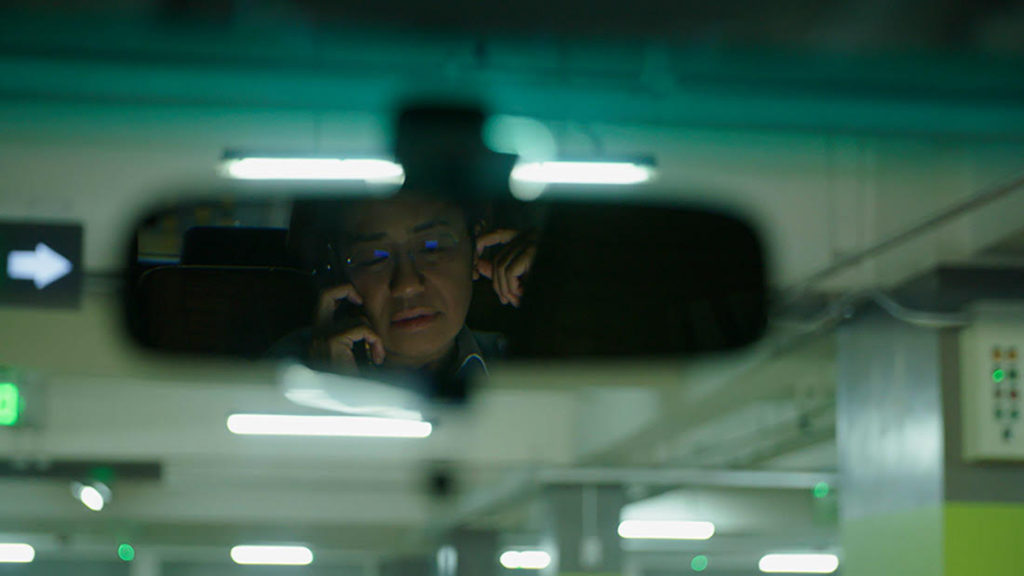
“A Thousand Cuts”: PBS
“A Thousand Cuts” is a powerful portrait of an indomitable journalist and an impassioned call to arms. Described by director Ramona S. Diaz as a film about “the erosion of democracy, and one woman’s story to hold power to account,” the doc examines social media disinformation campaigns and the current crackdown on the news media in the Philippines by President Rodrigo Duterte and spotlights one of the politician’s top targets, journalist and TIME Magazine’s Person of the Year Maria Ressa.
As founder and chief executive of the independent news site Rappler, Ressa tries to hold Duterte and his government accountable for their violent war on drugs and its escalating body count, and their role in circulating disinformation.
“A Thousand Cuts” shows what happens when Ressa and her colleagues try to call the government out. “You are a fake news outlet,” Duterte tells a Rappler reporter at a press conference. “You will be allowed to criticize us, but you’ll go to jail for your crimes.” Ressa is arrested. She also receives an average of 90 hate messages per hour, including rape and death threats. Still, she persists. She refuses to be silenced, despite the very real risk of being jailed or even murdered.
The doc is a fierce defense of democracy and the freedom of the press — causes that Ressa makes clear she’s willing to die for. (LB)
“A Thousand Cuts” is available via virtual cinemas.
“Coded Bias” – Directed by Shalini Kantayya
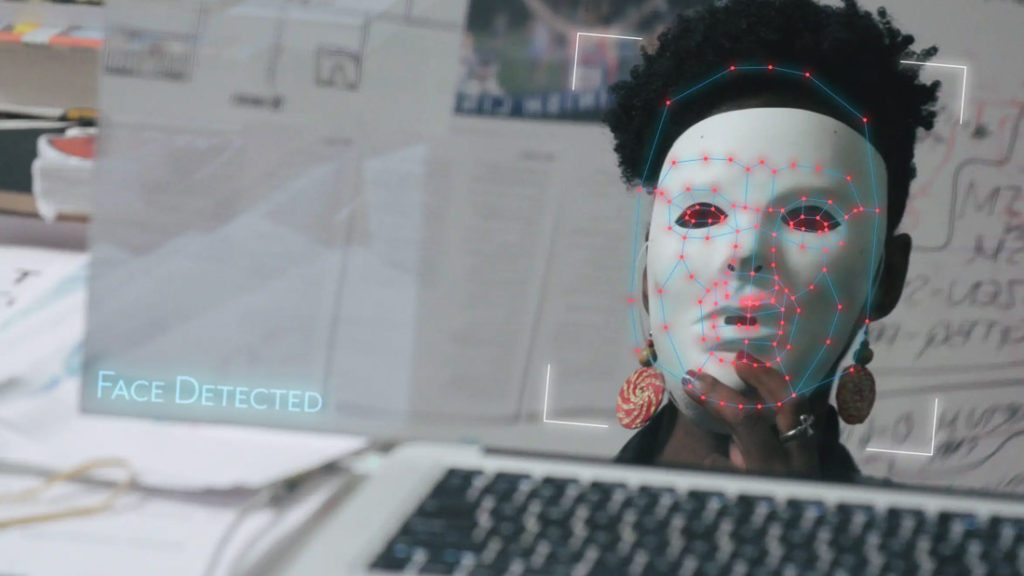
“Coded Bias”: Sundance Institute
With “Coded Bias,” Shalini Kantayya wanted to explore “the dark underbelly of big tech.” She was following the lead of Joy Buolamwini, an MIT media lab researcher who discovered that facial recognition does not see dark-skinned faces accurately.
Initially drawn to computer science because it seemed “detached from the problems of the real world,” Buolamwini quickly realized that it’s human beings — ones who are predominantly male and lighter-skinned — who teach AI how to see, and issues of bias inevitably creep into technology. When people offer machines skewed data, machines yield skewed results: facial recognition software is often inaccurate, and people get misidentified, directly impacting access to jobs and healthcare, as well as threatening their safety.
Kantayya’s doc makes a convincing — and rather terrifying — case for why blind faith in data isn’t just misguided, but dangerous. Tech is evolving at a rapid pace, and we need safeguards in place to ensure that racism, sexism, and other forms of prejudice aren’t being mechanized. By providing an overview of the situation and digging into particular case studies, “Coded Bias” serves as a wakeup call as well as a call to arms. It follows Buolamwini and others’ push for legislation in the U.S. to govern against bias in algorithms that affect so many facets of our lives.
“Coded Bias” isn’t just directed by and centered around a woman. The doc is dominated by women. Expert interviews tend to skew pale and male, especially in STEM docs, but “Coded Bias” highlights the voices of women, and particularly women of color, in a rare and welcome change. (LB)
“Coded Bias” is available via virtual cinemas.
“Belly of the Beast” – Directed by Erika Cohn
Though it’s most closely associated with Nazi Germany, eugenics has a history stateside as well. And it’s not just a thing of the past. “Belly of the Beast” tells the story of Kelli Dillon, one of many women who have been involuntarily sterilized while in prison. Erika Cohn’s documentary sees Dillon teaming up with Cynthia Chandler, a radical human rights lawyer, to expose horrifying reproductive injustice occurring in California prisons by taking on the Department of Corrections.
“Belly of the Beast” explores how — and why — this horror story unfolded: how inmates become numbers, and that depersonalization makes it easier for those in power to abuse them, the stigma against those behind bars that encourages the public to see them as subhuman, and the role that racism plays in all of this. “As a Black woman, my life wasn’t shit,” Dillon says. We hear from another prisoner who says that the forced sterilizations have been much more common among Black and Hispanic women than white women.
As difficult as it is to watch “Belly of the Beast,” it’s also incredibly inspiring to see Dillon and Chandler fight back against a system that has wronged so many, and particularly people of color. Dillon’s self-proclaimed “sad-ass story” is not complete. Now an activist and advocate, she demands, “There has to be a fucking happy ending.” (LB)
“Belly of the Beast” is available via virtual cinemas.
“Represent” – Directed by Hillary Bachelder
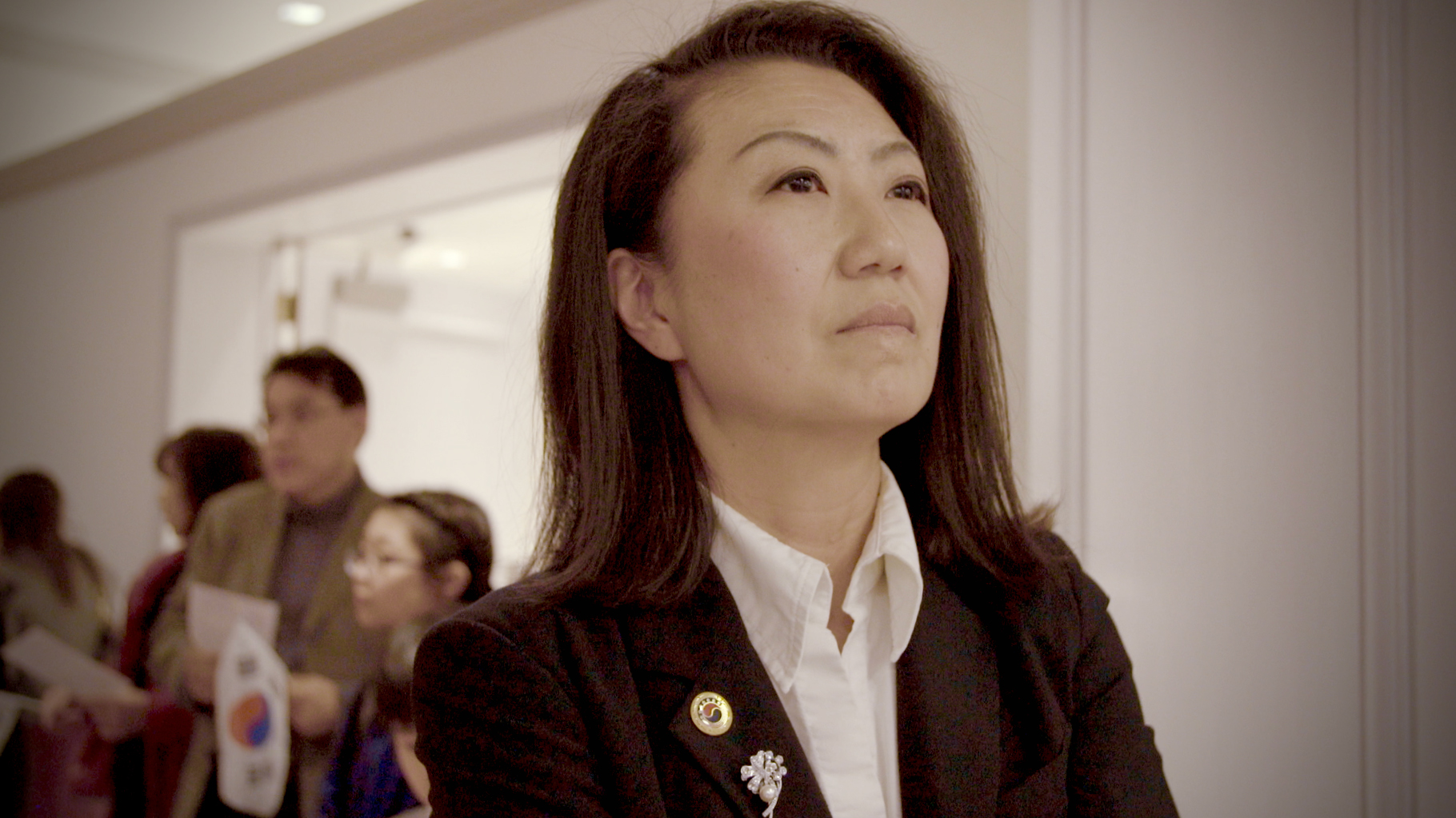
“Represent”
The past few years have seen a record-breaking number of women running for office. Hillary Bachelder follows three of these women — Myya Jones, Bryn Bird, and Julie Cho — in her feature directorial debut, “Represent.” Jones is a young Black Democrat hoping to be Detroit’s next mayor, and Bird is a Democrat who wants to make her rural Ohio community more progressive with her township trustee candidacy. Cho, a Korean immigrant, is a Republican running for state representative in the left-leaning Evanston, Illinois.
While each subject is open about her political views, which are often complicated, “Represent” is most interested in the machinations of mainstream politics — and the possibility, or lack thereof, of a newcomer breaking down its barriers. The doc also examines how Jones, Bird, and Cho’s unique identities — their race, gender, class, and age — impact their candidacies. The 22-year-old Jones, for instance, feels pressured to code-switch depending on whom she’s talking to, and many of her potential constituents are put off by how young she is. The fact that Bird is a woman poses a major obstacle, as the office she’s seeking is controlled by a conservative boys’ club. Cho, meanwhile, wants to make her party less white and male, but the party itself isn’t overly interested in supporting a woman candidate of color.
Unsurprisingly, “Represent” is a fairly bittersweet film. It’s a pleasure to see these women actively deciding to be the change, but this is America, where democracy is fragile and misogyny is immortal — Jones, Bird, and Cho’s stories aren’t always happy ones. But I dare you to watch this doc and not feel hopeful. The subjects won’t be the last women to seek political office; thanks to them, it will be easier for future generations to get elected and represent. (RM)
“Represent” is available for rent or purchase on VOD and digital platforms.
“All In: The Fight for Democracy” – Directed by Liz Garbus and Lisa Cortés

“All In: The Fight for Democracy”
Many people were introduced to Stacey Abrams during this past election, but the woman has been a warrior for the voting franchise for several years. Even before she ran for governor of Georgia she was educating all of us about how precious our vote is and how it is being systematically stolen from people of color. “All In: The Fight for Democracy” brings us behind the scenes in Georgia, which has been going through a political transformation. Once a reliably Republican state, it has been shifting over the last decade and went blue in November.
The movie makes clear that the 2020 election wasn’t a fluke, and that without the tactics of the Georgia Republican leaders — who ironically have been lauded for standing up for democracy — Abrams would be governor right now. I can’t get enough of her. She is a powerhouse. Her voice. Her determination.
As Georgia gets ready to be front and center for the fight for the Senate, be sure to check out the story of the woman who is fighting to ensure we all have the right to vote and determine our own future. (Melissa Silverstein)
“All In: The Fight for Democracy” is available on Amazon Prime Video.
“On the Record” – Directed by Amy Ziering and Kirby Dick; Written by Amy Ziering, Sara Newens, and Kirby Dick
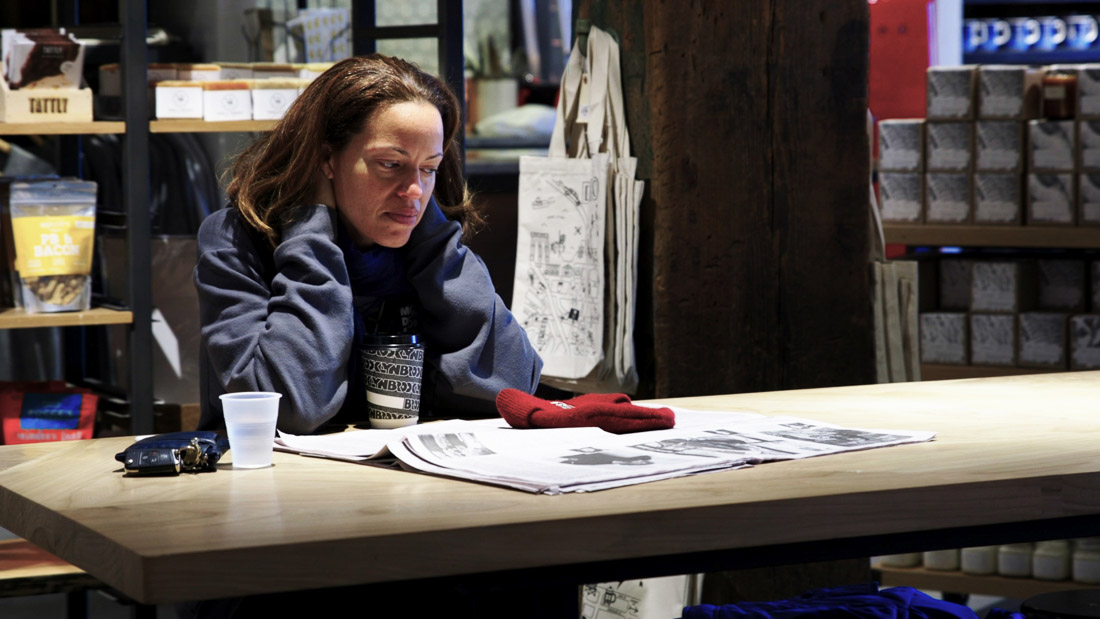
“On the Record”: Sundance Institute/Martyna Starosta
In the three-plus years since the #metoo movement changed the culture, most of those who have been removed from power for misdeeds have been older white men — Harvey Weinstein, Matt Lauer, Charlie Rose, Les Moonves. dream hampton and the brave women in the docuseries “Surviving R. Kelly” first peeled back the curtain on an African American predator. “On the Record” reveals another predator in Russell Simmons. While R. Kelly languishes in a jail cell, Simmons is supposedly living easy on an island in the Pacific outside of U.S. extradition.
Watching “On the Record” is not easy. It is an excavation into a woman’s soul. While there are several women who accuse Simmons, it is Drew Dixon’s story that anchors this film. After over 20 years of keeping the secret and letting it slither through her body and soul, she stands up and comes forward, first in a groundbreaking New York Times article. Filmmakers Amy Ziering and Kirby Dick — whose documentaries are known for tearing holes in powerful institutions, from the military to colleges and universities — have a smaller lens here, but the doc is powerful all the same. Watching Dixon see the Times piece for the first time in the actual paper in a café, you can see the expression of terror mixed with relief on her face. There was no going back.
The film reiterates that it is never easy for survivors to come forward, and that they are always second guessed. Women of color in particular are often doubted or ignored. Because of her allegations, Dixon does not have an easy time with people in the Black community. She pulled back the curtain, but some had hoped it would remain closed. (MS)
“On the Record” is available on HBO Max.
